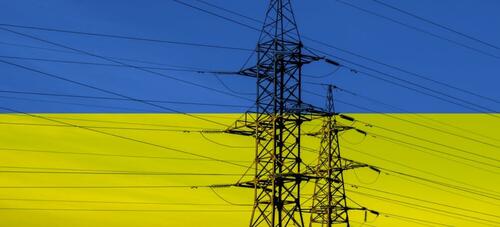Roughly 40 percent of Ukraine’s electricity imports pass through the Ukrainian-Hungarian border, which means Hungary is not entirely powerless in the face of a Ukrainian blockade on oil supplies. In fact, Hungary may be forced to cut electricity to its neighbor if push comes to shove.
Olivér Hortay, head of Századvég’s climate and energy policy department, noted that Ukraine’s biggest energy problem is the electricity system. Since the start of the war, the country has lost three-quarters of its own electricity generation capacity, leading to Ukrainians having to deal with prolonged blackouts and cuts to production due to a lack of electricity.
To deal with Ukraine’s faltering electricity network, the country has been importing energy from neighboring countries.
“The proportion of electricity coming through Hungary in terms of Ukrainian imports exceeded 40-42 percent during several periods,” said Hortay, while speaking to Hungarian television channel M1.
As a result, Ukraine may suffer “serious consequences” due to its oil blockade.
He notes that the MAVIR station in Szabolcsbáka is one of the main hubs of the European and Ukrainian electricity systems. This is the only Hungarian and EU substation with 750 kV system components. Roughly 40 percent of Ukraine’s electricity imports pass through here.
Hungary and Slovakia have both sounded the alarm to Brussels about Ukraine’s action of cutting oil supplies from Russia, which flow through the Friendship pipeline. However, the EU, which is well known for its opposition to the governments in Hungary and Slovakia, has responded cooly to the complaints, saying that Ukraine does not endanger the energy supplies of the two countries.
Hungarian Minister of Foreign Affairs and Trade Péter Szijjártó has rejected the EU’s argument and called Croatia, which is supposed to increase supplies in response to the Ukrainian blockade, an unreliable transit country.
Both Hungary and Slovakia rely on Russia for up to 80 percent of their oil supply, underlining the threat to both economies. Olivér Hortay explained that Russia’s Lukoil provides a third of the oil demand of the Hungarian Száhahalombatta refinery and 45 percent of the demand of the Bratislava refinery in Slovakia.
Gergely Gulyás, the minister in charge of the Prime Minister’s Office, called it unfair and contrary to EU agreements that Ukraine is blackmailing Hungary and Slovakia because of its pro-peace stance.
Hortay points to an existing association agreement, based on which Hungary and Slovakia initiated proceedings at the European Commission , where “literally it is stated that the parties cannot limit each other’s imports, exports and transit.”
Based on this agreement, he says it is self-evident that Ukraine’s action is illegal and that the European Commission should immediately convene a consultation forum.
The EU contends that the two nations can replace Russian oil on the Adriatic pipeline coming through Croatia
“If the loss of this does not cause a security of supply risk, it is not clear what would,” said Hortay.
He also noted that the theoretical maximum capacity of the Adriatic pipeline is 11 million tons per year, and the combined demand of the two countries is 12 million tons, and oil should also reach the Czech Republic.
